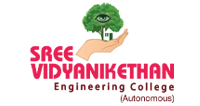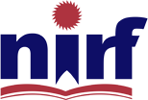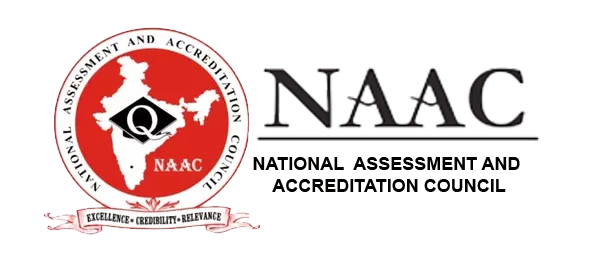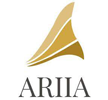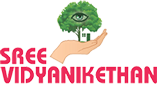NAAC 2019-20
NAAC - SSR - 2021
- 1.1. Number of programs offered
- 2.2. Number of Outgoing students
- 2.3. Number of Students appeared for exams
- 2.4. Number of Revaluation Applications received
- 3.1. List of courses offered across all programs
- 3.2. Faculty Relieved or Joined
- 3.3. Number of Sanctioned Posts
- 4.1. Number of Applications Received
- 4.2. Number of Seats Earmarked for Reservation
- 4.3. Total number of classrooms and seminar halls
- 4.4. Total number of computers in the campus for academic purpose
- 4.5. Total Expenditure excluding salary year wise
- 1.1.1. Curricula developed and implemented have relevance to the local, national, regional and global developmental needs
- 1.1.2 BOS Meeting Minutes
- 1.1.2 Percentage of Syllabus Changed
- 1.1.3. Courses having focus on employability/ entrepreneurship/ skill development offered by the institution.
- 1.2.1. New courses introduced.
- 1.2.2. Programs in which Choice Based Credit System (CBCS)/elective course system has been implemented.
- 1.3.1. Institution Integrates cross cutting issues relevant to Professional Ethics, Gender, Human Values, Environment and Sustainability into Curriculum.
- 1.3.2. Value-added courses for imparting transferable and life skills.
- 1.3.3. Students enrolled in the Value Added Courses
- 1.3.4. Students undertaking field projects/student projects/internships
- 1.4.1. Feedback forms received from Stakeholders
- 1.4.2. Analysis and Action Taken Report on Feedback
- 2.1.1. Average Enrolment percentage
- 2.1.2. Percentage of seats filled against reserved categories
- 2.2.1. Special Programmes for Advanced learners and slow learners
- 2.2.2. Student – Full time teacher ratio
- 2.3.1. Experiential learning, participative learning and problem solving methodologies
- 2.3.2. ICT enabled tools including online resources for effective teaching and learning process
- 2.3.3. Mentor Mentee
- 2.3.4. Academic Calendars and Teaching plans by the institution
- 2.4.1. List of faculty
- 2.4.2. Full time teachers with Ph.D.
- 2.5.1. Annual Report of Examination Section
- 2.5.3. IT integration and reforms in the examination procedures and processes
- 2.6.1. Programme outcomes and course outcomes for all Programmes offered by the institution
- 2.6.2. Attainment of program outcomes and course outcomes
- 2.6.3. Pass percentage of students
- 3.1.1. Policy for promotion of research
- 3.1.2. Seed money provided by institution
- 3.2.1. Grants received from Government and non-governmental agencies for research projects
- 3.2.3. Percentage of teachers recognized as research guides
- 3.3.1. Institution has created an eco system for innovations, creation and transfer of knowledge supported by dedicated centers for research, entrepreneurship, community orientation, Incubation
- 3.3.2. Workshops/seminars conducted on Research methodology, Intellectual Property Rights (IPR),entrepreneurship and skill development
- 3.4.1. Implementation of its stated Code of Ethics for research
- 3.4.2. Ph.D registered per teacher
- 3.4.4. Books and chapters in edited volumes/books published per teacher
- 3.5.1. Revenue generated from consultancy and corporate training
- 3.6.2. Awards and recognitions received by the Institution for extension activities
- 3.6.3. Extension and outreach programs conducted by the institution through NSS
- 3.7.1. Collaborative activities
- 3.7.2. Functional MoUs with institutions
- 4.1.1. Infrastructure and physical facilities for teaching – learning
- 4.1.2. Facilities for cultural activities, yoga, games and sports.
- 4.1.3. Classrooms and seminar halls with ICT – enabled facilities
- 4.1.4. Expenditure for infrastructure augmentation excluding salary
- 4.2.1. Library Automation
- 4.2.2. Institution has access to e-journals, e-ShodhSindhu, e-books, Databases, Remote access to e-resources
- 4.2.2.1.Details of subscriptions like e-journals, e-books, e-ShodhSindhu, Shodhganga Membership etc
- 4.2.3. Expenditure for purchase of books/ e-books and subscription to journals/e-journals
- 4.2.4. Percentage per day usage of Library by teachers and students
- 4.3.1. IT policy covering Wi-Fi, cyber security, etc.
- 4.3.2. Student – Computer ratio
- 4.3.4. Facilities for e-content development
- 4.4.1. Expenditure incurred on maintenance of physical facilities and academic support facilities excluding salary component
- 4.4.2. Systems and procedures for maintaining and utilizing physical, academic and support facilities
- 5.1.1. Students benefited by scholarships and freeships provided by the Government
- 5.1.2. Students benefited by scholarships, freeships, etc. provided by the institution and non-government agencies
- 5.1.3. Capacity development and skills enhancement activities
- 5.1.4. Students benefited by guidance for competitive examinations and career counselling offered
- 5.1.5. Grievance redressal of students including sexual harassment and raggingcases
- 5.2.1. Placement of outgoing students
- 5.2.3. Students qualifying in state/ national/ international level examinations
- 5.3.1. Awards/medals for outstanding performance in sports/cultural activities
- 5.3.2. Representation of Students on Academic & Administrative Bodies / Committees of the Institution
- 5.3.3. Sports and cultural events / competitions organised by the institution
- 5.4.1. Alumni Association/Chapters
- 6.1.1. The governance of the institution
- 6.1.2. Decentralization and Participative management
- 6.2.1. The institutional Strategic/ Perspective plan
- 6.2.2. Functioning of the institutional bodies
- 6.2.3. Implementation of e-governance
- 6.3.1. The institution has effective welfare measures for teaching and non-teaching staff
- 6.3.2. Teachers provided with financial support to attend conferences / workshops
- 6.3.3. Professional development / administrative training programs organized by the institution
- 6.3.4. Teachers undergoing online/ face-to-face Faculty Development Programmes
- 6.4.1. Internal and External financial audits
- 6.4.3. Strategies for mobilisation of funds and the optimal utilisation of resources
- 6.5.1. IQAC – Quality Assurance Strategies and Processes
- 6.5.2. Teaching learning process, structures & methodologies of operations and learning outcomes
- 6.5.3. Quality assurance initiatives of the institution
- 7.1.1. Measures initiated for the promotion of gender equity
- 7.1.1. Annual Gender Sensitization Action Plan
- 7.1.2. Alternate sources of energy and energy conservation measures
- 7.1.3. Degradable and non-degradable Waste Management
- 7.1.4. Water conservation facilities available in the Institution
- 7.1.5. Green campus initiatives
- 7.1.6. Quality audits on environment and energy
- 7.1.7. Disabled-friendly and Barrier free environment
- 7.1.8. Inclusive environment
- 7.1.9. Sensitization of students and employees of the Institution to the constitutional obligations
- 7.1.10. Code of conduct for students, teachers, administrators and other staff
- 7.1.11. National and International commemorative days, events and festivals
- 7.2.1. Best Practices
- 7.3.1. Institution distinctiveness
